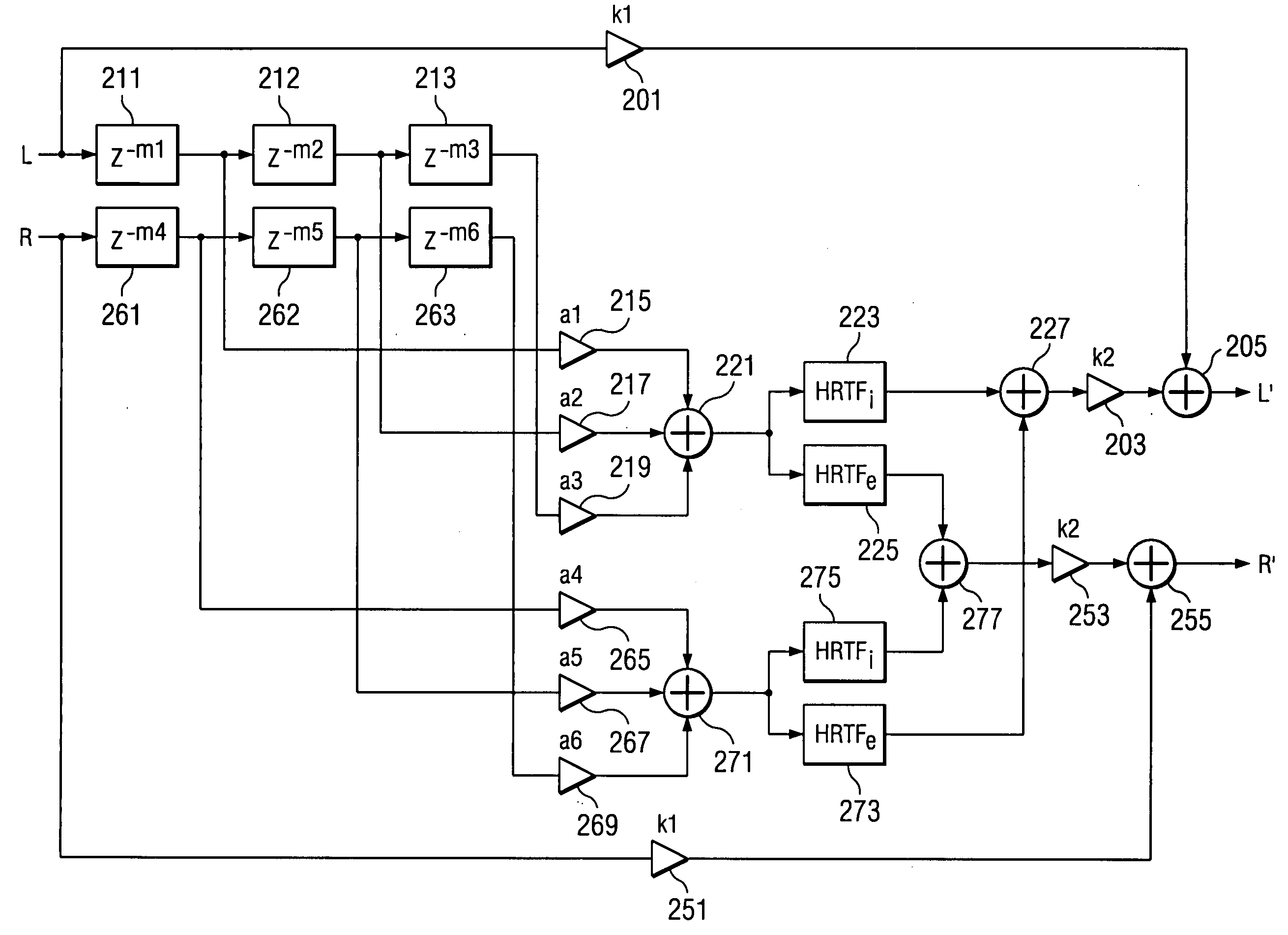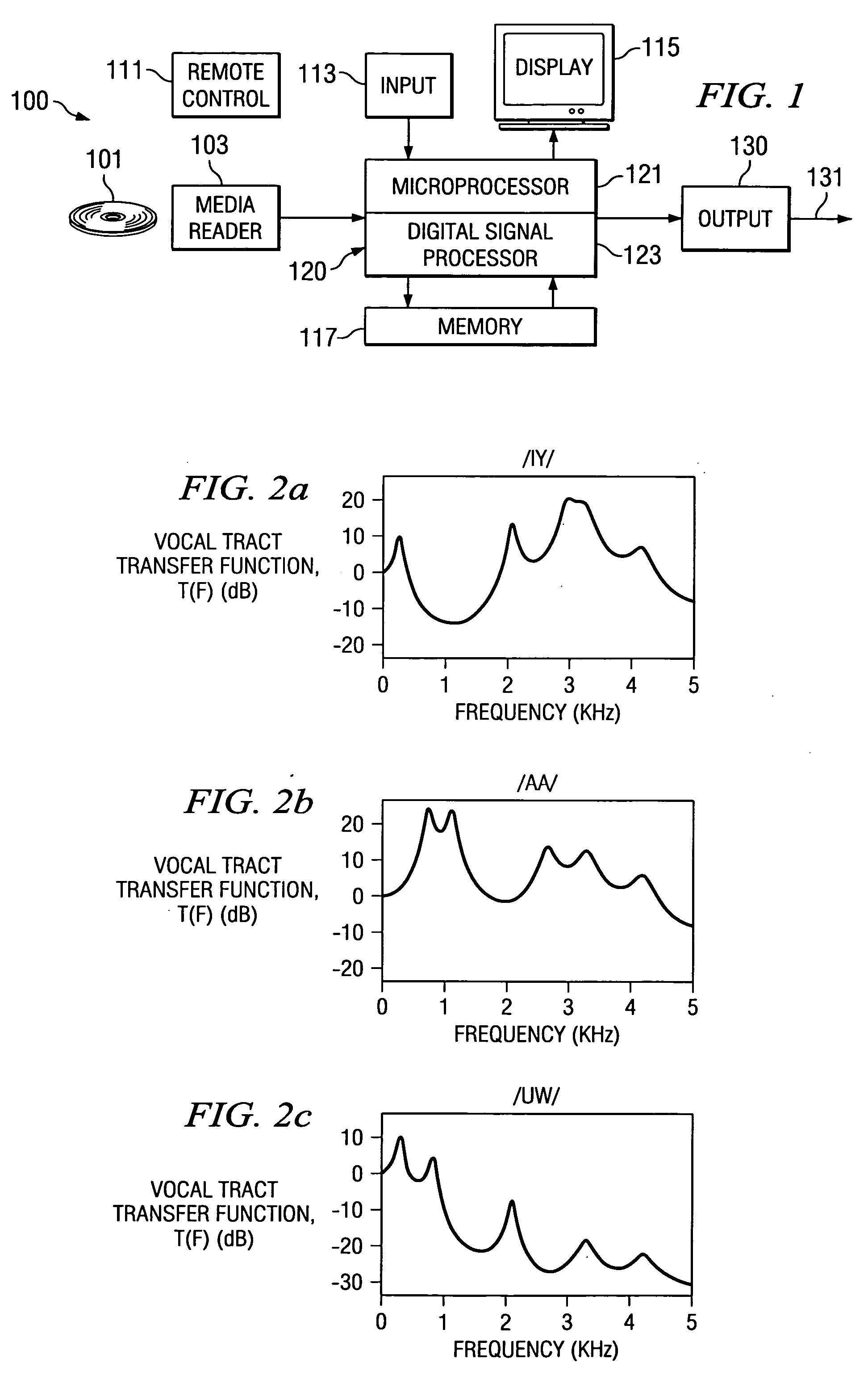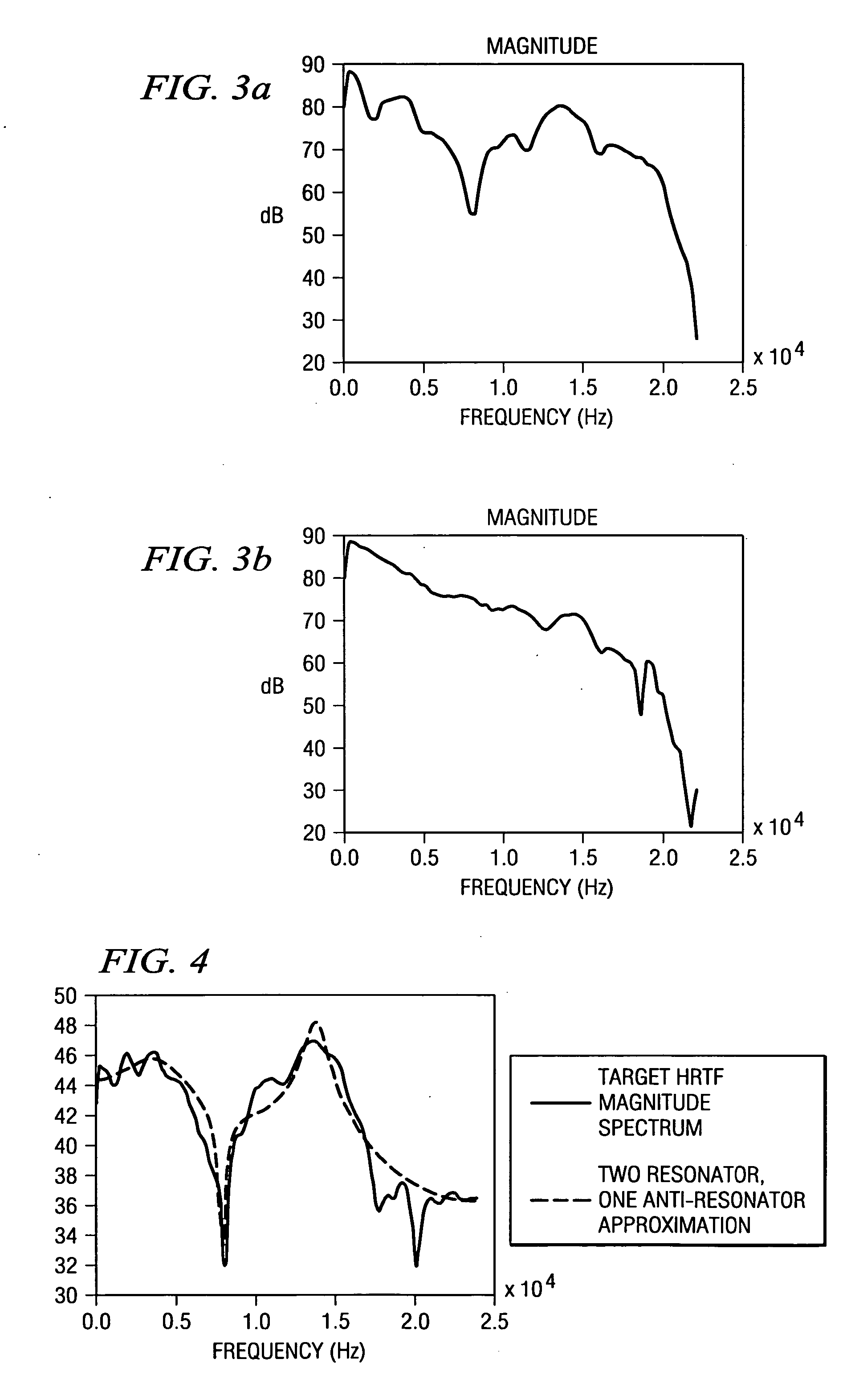Binaural sound localization using a formant-type cascade of resonators and anti-resonators
a formant-type, binaural sound technology, applied in the direction of transducer details, stereophonic arrangments, earpiece/earphone attachments, etc., can solve the problem of large amount of memory for storing filter coefficients, high computational costs of head-related transfer functions (hrtf) filters, and the need for simulation, etc. problem, to achieve the effect of saving considerable memory, no detectable deterioration of output quality, and computational efficiency
- Summary
- Abstract
- Description
- Claims
- Application Information
AI Technical Summary
Benefits of technology
Problems solved by technology
Method used
Image
Examples
Embodiment Construction
[0019]FIG. 1 is a block diagram illustrating a system to which this invention is applicable. The preferred embodiment is a DVD player or DVD player / recorder in which the 3D sound localization time scale modification of this invention is employed.
[0020] System 100 received digital audio data on media 101 via media reader 103. In the preferred embodiment media 101 is a DVD optical disk and media reader 103 is the corresponding disk reader. It is feasible to apply this technique to other media and corresponding reader such as audio CDs, removable magnetic disks (i.e. floppy disk), memory cards or similar devices. Media reader 103 delivers digital data corresponding to the desired audio to processor 120.
[0021] Processor 120 performs data processing operations required of system 100 including the 3D sound localization of this invention. Processor 120 may include two different processors microprocessor 121 and digital signal processor 123. Microprocessor 121 is preferably employed for c...
PUM
 Login to View More
Login to View More Abstract
Description
Claims
Application Information
 Login to View More
Login to View More - R&D
- Intellectual Property
- Life Sciences
- Materials
- Tech Scout
- Unparalleled Data Quality
- Higher Quality Content
- 60% Fewer Hallucinations
Browse by: Latest US Patents, China's latest patents, Technical Efficacy Thesaurus, Application Domain, Technology Topic, Popular Technical Reports.
© 2025 PatSnap. All rights reserved.Legal|Privacy policy|Modern Slavery Act Transparency Statement|Sitemap|About US| Contact US: help@patsnap.com



